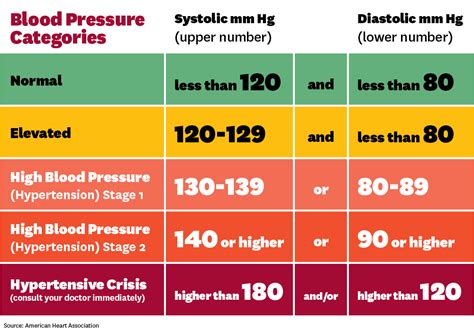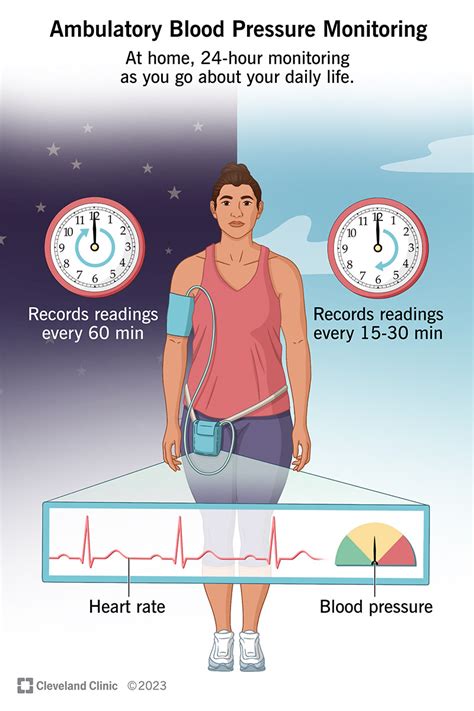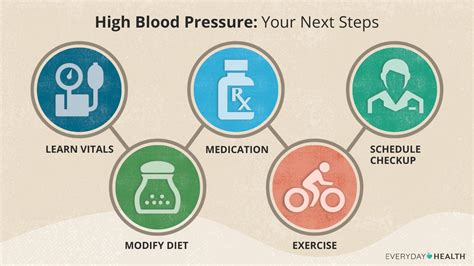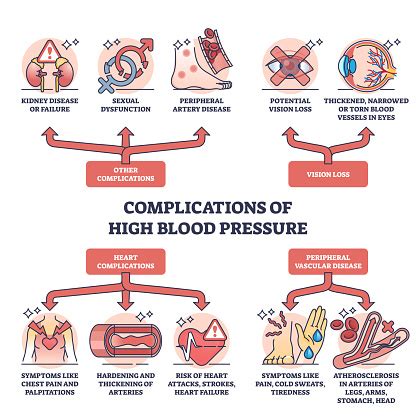Intro
Discover the ideal Normal Blood Pressure Range, including systolic and diastolic readings, to maintain a healthy cardiovascular system and prevent hypertension, hypotension, and related heart diseases.
Maintaining a healthy blood pressure is crucial for overall well-being, as it plays a vital role in ensuring the proper functioning of our cardiovascular system. Blood pressure is the force exerted by blood against the walls of arteries as it circulates throughout the body. It is measured in millimeters of mercury (mmHg) and is typically expressed as two values: systolic pressure (the top number) and diastolic pressure (the bottom number). Understanding the normal blood pressure range is essential for identifying potential health risks and taking preventive measures to maintain a healthy cardiovascular system.
The importance of monitoring blood pressure cannot be overstated, as high blood pressure (hypertension) is a significant risk factor for various health conditions, including heart disease, stroke, and kidney disease. On the other hand, low blood pressure (hypotension) can also lead to health complications, such as dizziness, fainting, and inadequate blood flow to vital organs. Therefore, it is essential to be aware of the normal blood pressure range and take steps to maintain it.
Blood pressure is influenced by a combination of factors, including genetics, lifestyle, and environmental factors. A sedentary lifestyle, poor diet, stress, and smoking can all contribute to high blood pressure, while regular exercise, a balanced diet, and stress management can help maintain a healthy blood pressure. Understanding these factors and taking proactive steps to manage them can help individuals maintain a normal blood pressure range and reduce their risk of developing cardiovascular diseases.
Understanding Blood Pressure Readings

To understand blood pressure readings, it is essential to know the different categories of blood pressure. The American Heart Association (AHA) defines the following categories: normal blood pressure (less than 120/80 mmHg), elevated blood pressure (120-129/80 mmHg), stage 1 hypertension (130-139/80-89 mmHg), and stage 2 hypertension (140 or higher/90 or higher mmHg). Understanding these categories can help individuals identify their blood pressure status and take necessary steps to maintain a healthy blood pressure.
Factors Influencing Blood Pressure
Several factors can influence blood pressure, including age, sex, family history, and lifestyle. As people age, their blood pressure tends to increase, with men typically experiencing higher blood pressure than women until age 45. After menopause, women's blood pressure tends to increase, making them more susceptible to hypertension. A family history of hypertension can also increase an individual's risk of developing high blood pressure.Maintaining a Healthy Blood Pressure

Maintaining a healthy blood pressure requires a combination of lifestyle modifications and, in some cases, medication. The following are some ways to maintain a healthy blood pressure:
- Engage in regular physical activity, such as walking, jogging, or cycling
- Follow a balanced diet that is low in sodium, saturated fats, and added sugars
- Maintain a healthy weight through a combination of diet and exercise
- Manage stress through techniques such as meditation, yoga, or deep breathing
- Get adequate sleep (7-8 hours for adults) to help regulate blood pressure
- Limit alcohol consumption and avoid smoking
Lifestyle Modifications for Blood Pressure Management
Lifestyle modifications play a crucial role in maintaining a healthy blood pressure. The following are some lifestyle changes that can help manage blood pressure: * Increase potassium intake through foods such as bananas, leafy greens, and sweet potatoes * Reduce sodium intake by limiting processed and packaged foods * Incorporate stress-reducing activities into daily routine * Get regular exercise, aiming for at least 150 minutes of moderate-intensity aerobic activity per week * Monitor blood pressure regularly to track changes and adjust lifestyle modifications as neededMonitoring Blood Pressure

Monitoring blood pressure is essential for maintaining a healthy cardiovascular system. The following are some ways to monitor blood pressure:
- Use a home blood pressure monitor to track blood pressure regularly
- Schedule regular check-ups with a healthcare provider to monitor blood pressure and adjust treatment plans as needed
- Keep a blood pressure log to track changes and identify patterns
- Use a mobile app or online tool to track blood pressure and receive reminders to monitor blood pressure
Importance of Regular Health Check-Ups
Regular health check-ups are crucial for maintaining a healthy blood pressure. During these check-ups, healthcare providers can: * Monitor blood pressure and adjust treatment plans as needed * Screen for underlying health conditions that may be contributing to high blood pressure * Provide guidance on lifestyle modifications and stress management techniques * Prescribe medication if necessary to manage blood pressureManaging High Blood Pressure

Managing high blood pressure requires a combination of lifestyle modifications and, in some cases, medication. The following are some ways to manage high blood pressure:
- Follow a treatment plan developed by a healthcare provider
- Take medication as prescribed to manage blood pressure
- Engage in regular physical activity to help lower blood pressure
- Follow a balanced diet that is low in sodium, saturated fats, and added sugars
- Manage stress through techniques such as meditation, yoga, or deep breathing
Medications for High Blood Pressure
Medications can play a crucial role in managing high blood pressure. The following are some common medications used to treat high blood pressure: * Diuretics to help remove excess fluid from the body * Beta blockers to slow the heart rate and reduce blood pressure * ACE inhibitors to relax blood vessels and reduce blood pressure * Calcium channel blockers to relax blood vessels and reduce blood pressure * Alpha blockers to relax blood vessels and reduce blood pressureComplications of High Blood Pressure

High blood pressure can lead to various health complications, including:
- Heart disease: High blood pressure can increase the risk of heart disease, including heart attacks, strokes, and cardiac arrhythmias.
- Kidney disease: High blood pressure can damage the kidneys and increase the risk of kidney disease.
- Vision loss: High blood pressure can damage the blood vessels in the eyes, leading to vision loss.
- Cognitive decline: High blood pressure can increase the risk of cognitive decline and dementia.
Preventing High Blood Pressure
Preventing high blood pressure requires a combination of lifestyle modifications and, in some cases, medication. The following are some ways to prevent high blood pressure: * Engage in regular physical activity to help lower blood pressure * Follow a balanced diet that is low in sodium, saturated fats, and added sugars * Manage stress through techniques such as meditation, yoga, or deep breathing * Get adequate sleep (7-8 hours for adults) to help regulate blood pressure * Limit alcohol consumption and avoid smokingWhat is the normal blood pressure range for adults?
+The normal blood pressure range for adults is less than 120/80 mmHg.
What are the risks of high blood pressure?
+High blood pressure can increase the risk of heart disease, kidney disease, vision loss, and cognitive decline.
How can I lower my blood pressure?
+You can lower your blood pressure by engaging in regular physical activity, following a balanced diet, managing stress, and getting adequate sleep.
In conclusion, maintaining a healthy blood pressure is crucial for overall well-being. By understanding the normal blood pressure range, monitoring blood pressure regularly, and making lifestyle modifications, individuals can reduce their risk of developing cardiovascular diseases. If you have concerns about your blood pressure, consult with a healthcare provider to develop a personalized treatment plan. Share this article with friends and family to raise awareness about the importance of blood pressure management, and take the first step towards maintaining a healthy cardiovascular system.
